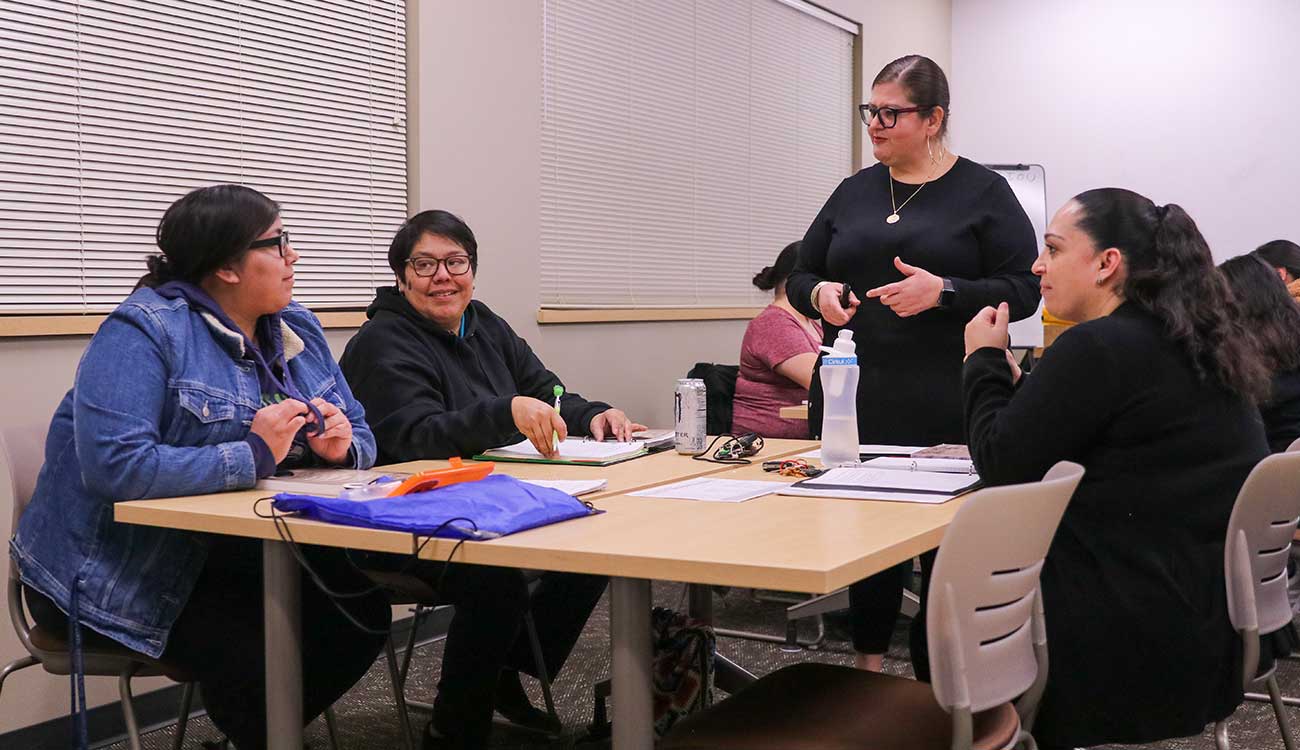After being shuttered due to COVID for more than two years, Yakima Valley College’s Toppenish Learning Center opened its doors in January, restoring a critical educational resource for the local community.
Both English Language Acquisition (ELA) and Adult Basic Education classes resumed being offered in Toppenish, with approximately 60 students enrolled at the learning center during winter quarter.
ELA Instructor Vianey Rivas, who’s previously taught classes on both the Yakima and Grandview campuses as well as at La Casa Hogar, taught for the first time in Toppenish this quarter and emphasized the importance of students having an opportunity to take classes in their community.
“Students around the Toppenish area like the idea of having a learning center close to home,” Rivas said. “The YVC center in Toppenish provides useful resources, where students can get support, guidance and a great learning experience. YVC embraces learning in a variety of ways and students need to take advantage of these opportunities.”
“We’re grateful for this opportunity to partner with the Yakama Nation and further build our ties with the community and the students coming to our Toppenish Learning Center.”
— Marc Coomer, dean, College and Career Readiness
As part of the Toppenish Learning Center’s reopening, YVC also launched a new partnership with Safe Haven Community Center to help meet a growing demand for learning English. Through the partnership, Safe Haven clients are able to take ELA classes taught by YVC faculty, while also taking citizenship classes led by Safe Haven staff. Classes are held in the evening, three times per week.
Safe Haven covers all costs for its clients, including free childcare for individuals who need it. For more information about participating, call Safe Haven at 509.865.1804.
Also this winter, the Yakama Nation Higher Education Program has partnered with YVC to provide some of its programming at the Toppenish Learning Center. That includes classes for forestry degree programs offered through the Yakama Nation Higher Education Program as an extension campus for Salish Kootenai College (SKC), as well as its Yakama language classes.
“We are extremely grateful for the partnership this quarter,” said Josephine Honanie, campus site coordinator with the Yakama Nation Higher Education and Adult Vocational Training Program. “It has been beneficial for our SKC-Yakama students and our adjunct instructor to have access to the technology and classroom space. It has allowed us to open up registration for the Yakama language course to employees and community members of the Yakama Nation.”
“We’re grateful for this opportunity to partner with the Yakama Nation and further build our ties with the community and the students coming to our Toppenish Learning Center,” said Marc Coomer, dean of College and Career Readiness.
